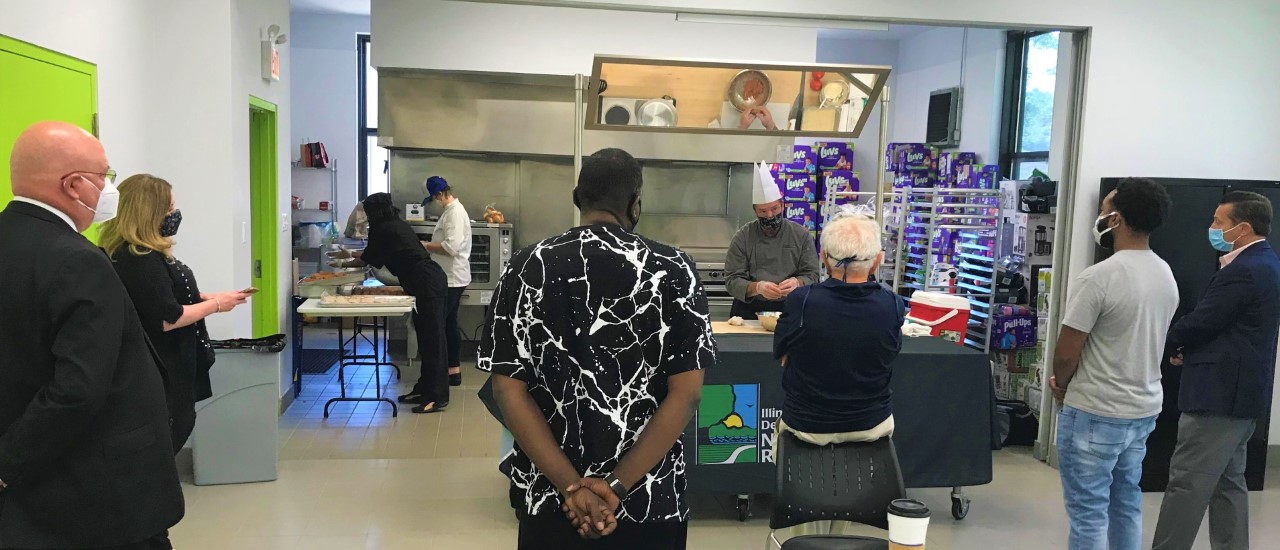Hunter applauds new IDOT diversity initiative
- Details
- Category: News
 SPRINGFIELD — After a Senate hearing Thursday about transparency and equity at the Illinois Department of Transportation, IDOT and other members of the Mid-America Association of State Transportation Agencies voted to establish a diversity committee. State Senator Mattie Hunter (D-Chicago) praised the decision in the following statement:
SPRINGFIELD — After a Senate hearing Thursday about transparency and equity at the Illinois Department of Transportation, IDOT and other members of the Mid-America Association of State Transportation Agencies voted to establish a diversity committee. State Senator Mattie Hunter (D-Chicago) praised the decision in the following statement:
“For years, we’ve heard serious complaints about acts of discrimination at IDOT. Thursday, we gave Secretary Omer Osman the opportunity to respond to these allegations, and I’m happy to see that he’s taken them seriously.
“The establishment of this diversity committee is a start, but it will not be enough to fix the issues on its own. I’m looking forward to seeing policies that result in us hearing less and less discrimination complaints.
“I hope to see the organization implement more opportunities for people of color statewide, both in employment and mobility.”
Hunter voices support for Emmett Till landmark
- Details
- Category: News
CHICAGO — State Senator Mattie Hunter (D-Chicago) is joining advocate groups and Alderman Jeanette Taylor in calls to make the childhood home of Emmett Till a landmark on the 65th anniversary of his death.
“Emmett’s unjust death parallels many today – George Floyd, Ahmaud Arbery, Breonna Taylor, and too many others to count,” Hunter said. “Emmett received no justice for being murdered senselessly, just as others we’ve seen this year that are still waiting for justice. This is why we proclaim, ‘Black Lives Matter’ – because the justice system hasn’t shown us that they do.”
Jesse White Announces One-Year Extension of Driver’s License Expiration Dates for Seniors Age 75 and Older
- Details
- Category: Constituent Services
New expiration date will be one year from current 2020 expiration date

Illinois Secretary of State Jesse White announced that the expiration date for valid driver’s licenses held by Illinois drivers who are 75 years of age or older has been extended for a period of one year past the licenses’ current 2020 expiration date. As a result, drivers age 75 and older with a 2020 driver’s license expiration date do not need to visit a facility to renew their driver’s license until shortly before their birthday in 2021.
“I am mindful of the heightened risks associated with seniors contracting COVID-19, and that is why I have authorized this important change during this challenging and unique time,” said White.
Hunter donates to local food relief effort in order to feed hungry and support small businesses
- Details
- Category: News

CHICAGO — In an effort to help local families in need, State Senator Mattie Hunter (D-Chicago) partnered with the Illinois Department of Natural Resources (IDNR), Chicago food dispensaries, and State Representative Sonya Harper (D-Chicago) to host a cooking demonstration and tasting event in the Englewood neighborhood last Friday.
“Many people are struggling to make ends meet and to feed their families during the public health crisis,” Hunter said. “I will do anything I can to help families in what may be the most challenging times of their lives.”
More Articles …
Page 78 of 143


